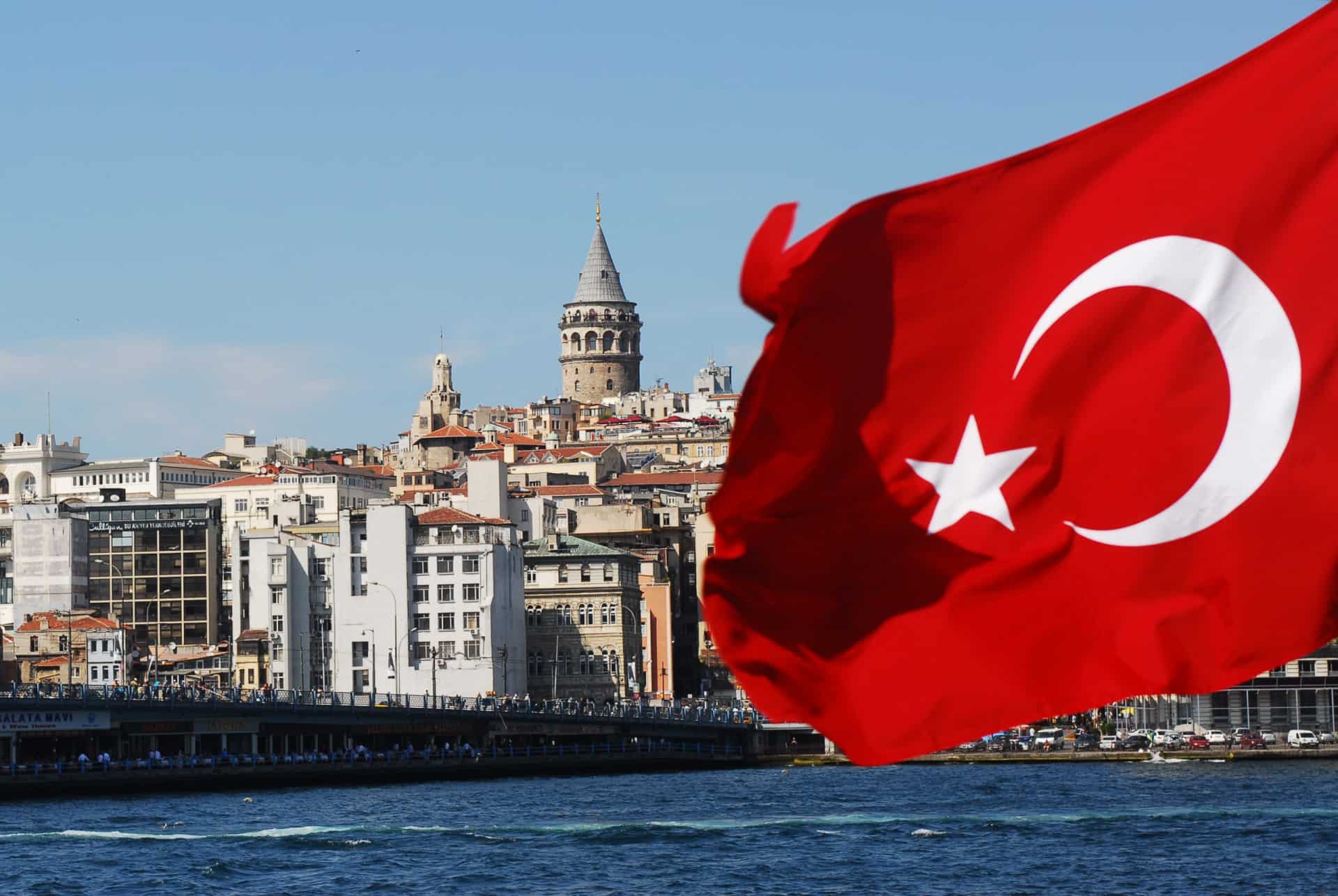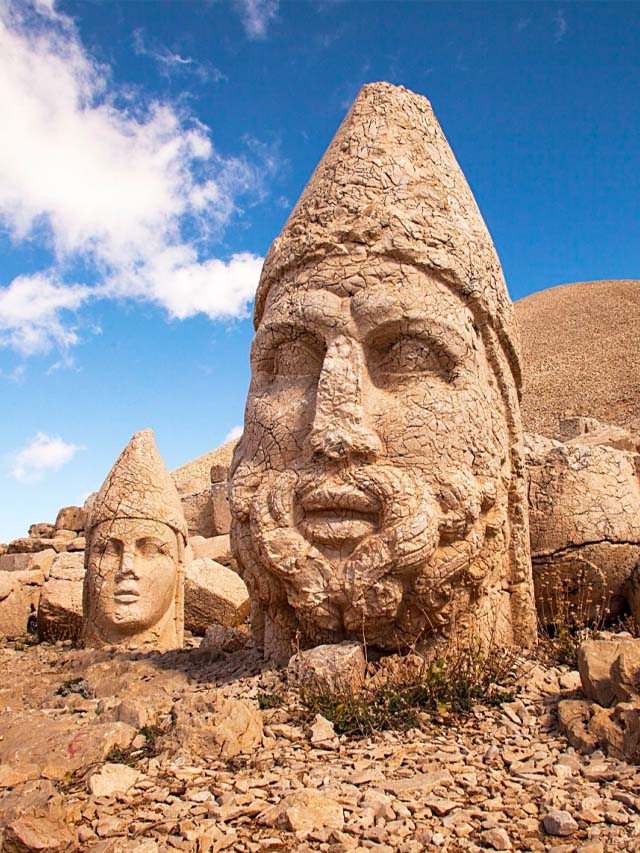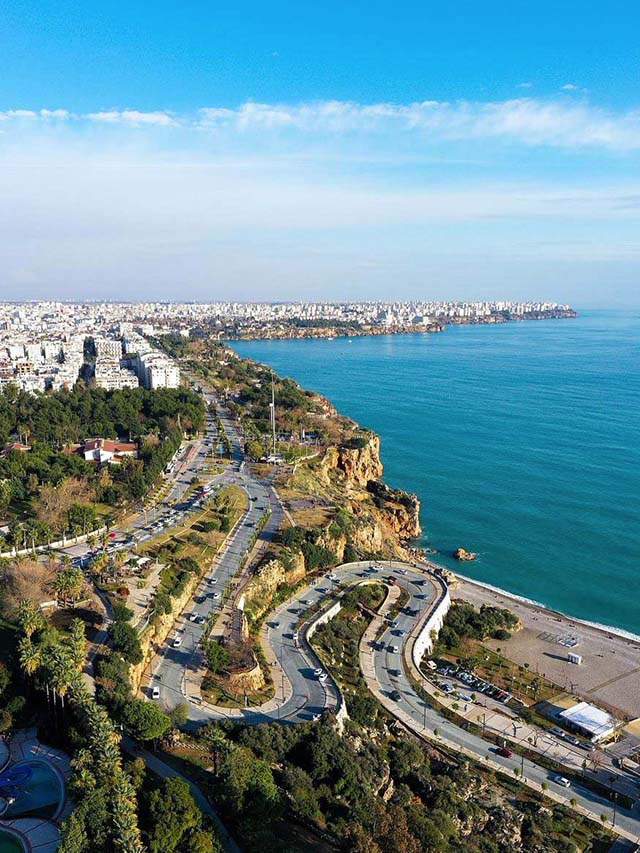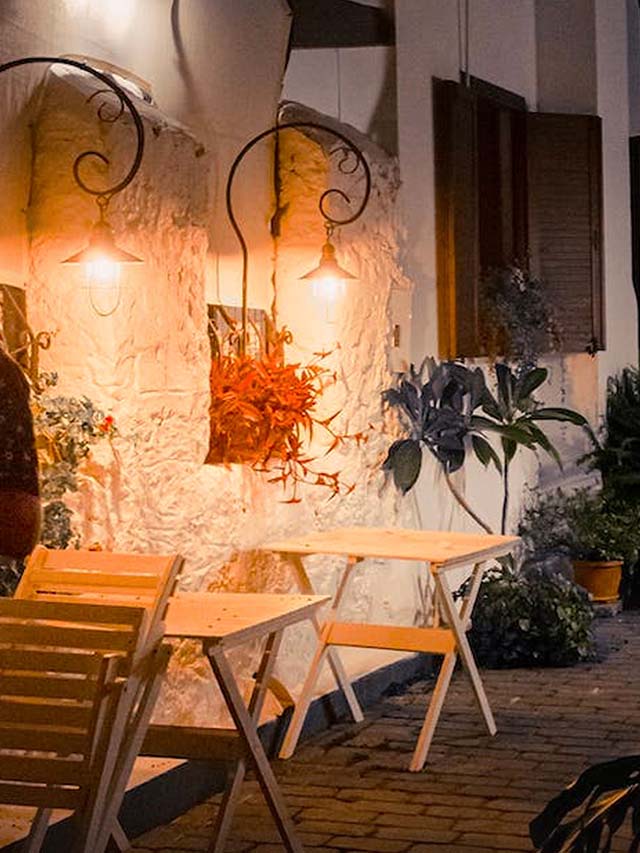
From the sun-baked Mediterranean coastline to the energetic cities of Antalya, İzmir, Ankara and Istanbul, Turkey offers expats a rich and balanced lifestyle.
Whether you move to Turkey to climb the corporate ladder or to enjoy a laid-back retirement, you’ll find it a captivating place to live. A recent building boom means there are plenty of properties to buy. The cost of living is lower than other popular expat destinations in Europe. And an extensive public transport network makes both local and long-distance travel easy.
According to Turkish tradition, a stranger at one’s doorstep is considered a guest from God. As an expat in Turkey, you will often experience the cordial hospitality which is common for this country. This attitude does not only attract expats, but many tourists as well. The beautiful beaches on the Mediterranean and Aegean coasts are especially popular among visitors and expatriates.
Turkey’s currency is the Türk Lirasi (Turkish Lira / TL). It was introduced in 2005 and is widely used. However, if you’ll be living in a tourist area, you may even find shops and restaurants which also accept foreign currency. If you still carry USD or EUR, you may thus be able to spend them.
Antalya, a gorgeous resort city, is an ideal example. The best things to do here are free or stunningly cheap. Beaches are all public, so lounging in the sun or swimming in the sea is free.
You don’t always have to eat at home in Antalya. You’ll find the street food to be quite cheap, and there are a ton of budget restaurants too.
Market prices in Turkey will be quite affordable for you due to the exchange rate difference. You can meet your long-term grocery needs for about 50 dollars.
Turkey Food Prices
| Product | Turkish Lira | USD |
|---|---|---|
| Yogurt 1kg | 55 | 3 |
| Olive oil 1lt | 109 | 6 |
| Milk 1lt | 21 | 1,15 |
| Butter 250g | 54 | 2,94 |
| Organic eggs (10 pieces) | 46 | 2,58 |
| Beef Sausage 225g | 76 | 4 |
| Olives 400g | 51 | 2,80 |
| Nutella Cocoa Hazelnut Cream 400g | 37,50 | 2 |
| Vegan Almond Milk | 70 | 3,85 |
| Feta Cheese 500g | 49 | 2,70 |
| Cheddar Cheese 200g | 34 | 1,90 |
| Tomatoes 600g | 17 | 0,90 |
| Cucumber 500g | 10 | 0,55 |
| Wheat bread | 4 | 0,25 |
Even if you choose to eat out, the average meal for one person is $3. In restaurants slightly above the average, it varies between 3-8 $. Beer Prices are between $1-3 Sitting in the historic Old Quarter to watch the boats float into the harbor while enjoying a Turkish coffee is only 1 dollar.
Since Antalya is in the Mediterranean region, it is one of the cities where fruits and vegetables are the freshest and most affordable. Vegetables and fruits are usually sent from this region to other cities of the country. Therefore, the fruits and vegetables of the Mediterranean climate are available directly from the producer to the consumer at an affordable price.
Fuel Prices in Turkey / lt.
| Gasoline | 19 | 1,04 |
| Diesel | 24,73 | 1,36 |
| Gas | 11,21 | 0,62 |
Finding a Place to Live in Turkey
Before renting an apartment or house, you should know that rents vary greatly depending on location and facilities. For example, the average rent for a 3-bedroom apartment in Antalya ranges from 300 USD to 900 USD. These prices vary according to the location of the flat, its size and whether it is furnished or not.
Most apartments in Turkey have a living room, three bedrooms, a kitchen and a bathroom. Generally speaking, these are unfurnished. Furnished rooms are fairly basic, including only basic equipment and furnishings. As a foreigner, you may be asked to pay your rent in USD or EUR.
Education in Turkey
Education standards vary in Turkey’s public schools – so most expats send their children to a private or international school. The academic year runs from mid-September or early October through to May or early June with the main holidays in January/February and June to September.
Public schools
Children must attend school between the age of 6 and 18. Both primary and secondary schools are free for expats. Large classes and a shortage of teachers mean that a school may divide the day into two sessions, with some children attending in the morning and others in the afternoon.
Private schools
Private schools follow the national curriculum and lessons are taught in Turkish. Children have to pass an entrance exam to get a place.
Homeschooling
Homeschooling is illegal in Turkey – and failing to register your children at a school is a serious criminal offence.
International schools
Most of Turkey’s international schools are in Ankara and Istanbul. These mostly follow American, British or German curricula or the International Baccalaureate. And many teach Turkish as part of the syllabus. Fees are high and competition for places can be fierce.
Accommodation in Turkey
There’s a wide choice of accommodation in Turkey. Many people live in spacious apartments, condominiums or luxury villas. Most rental properties are unfurnished. Usually, rental contracts are standard. You’ll likely have to put down a deposit of a month’s rent, and you may have to pay a regular maintenance fee if you live in an apartment complex. Contact us now to find the house of your dreams!
Healthcare in Turkey
The quality of healthcare in Turkey varies from region to region. Public healthcare in Turkey tends to be cheaper than in the rest of Europe.
Most expats in Turkey use private hospitals, however, which are more likely to have medical staff who speak English. Private healthcare is cheap, and standards are good, making the country a popular medical tourism destination, particularly for dental treatments, plastic & cosmetic surgery and fertility treatment.
Most Turkish neighbourhoods have a duty pharmacy that’s open 24 hours a day. Many medications that are only available on prescription in other countries are sold over the counter in Turkey.
Getting around in Turkey
With good public transport infrastructure, it’s easy to get around Turkey. Catching a bus is one of the easiest and cheapest ways to travel in Turkey. The bus network is extensive – long-distance routes connect many towns and cities, and intercity buses are clean and comfortable.
The rail network, run by Turkish Republic State Railways, covers most of the centre and east of the country, but services are limited in the west and along the Mediterranean coast. There’s a high-speed line between Istanbul and Ankara, and both cities have reliable metro systems.
Cost of living in Turkey
The cost of living in Turkey is lower than in many European countries. In particular, public transport is cheap and housing is good value for money compared to the rest of Europe and the USA.
Buying food at a local market is the cheapest option. Many modern supermarkets stock imported products, but these often have a high price tag. You may also find red meat surprisingly expensive.
Note: This blog post was published on September 5, 2022. Prices are taken from various grocery shopping apps and fuel stations. USD/TL rate on the day of writing: 18.22
Benefited from HSBC Expat.






